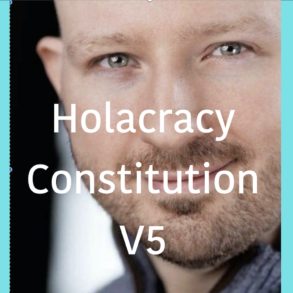Leaders and leadership differ; leadership assessment and leadership development are linked.
Summarized by Zlatina Tsvetkova for Enlivening Edge Magazine
Original Google Hangout video available here. [1]
The description of the conversation says:
There has never been a time in which defining, practicing and developing leadership has been so important. The current Presidential race in the United States is a good case in point. What is leadership and where do we find it? Is the best leadership approach direct or subtle, simple or complex, decisive or flexible, focused or distributed? To what extent does context matter?
In this conversation we bring together three experts in the field of leader and leadership development to share what they have learned about how leadership develops over time and which leader skills appear to matter most.
We will explore new research on perspective taking and seeking in leader decision-making, the limitations of behavior-focused initiatives relative to capacity-building initiatives, and strategies for supporting the development of leader skills in everyday work life.
Here are the main themes they discussed.
The perspective on leadership is changing from individualistic to systemic.
Leadership has been field of scientific research and organizational interest for less than a hundred years, so there are few well-developed and agreed-upon theories about it. Academics and practitioners each view it differently, and there have been multiple perspectives on what leadership is, what makes it important, and how to develop it. The initial view on leadership was equated with leaders and their personal traits and characteristics. Later on, leaders would be defined through their followers and their relationships with them. Most recently, leadership is also considered through the perspective of systemic environments and contexts where it is occurring and developing in time.
In that process of broadening the understanding of leadership there has been more and more significant distinction between leader development and leadership development. When we talk about leader development, it usually means the skills of individual leaders, referred to as “human capital development.” Leadership development is about building the relationships in systems within which leaders are developed. This process can also be called “social capital development.”
Currently, the most important skills for leaders both in private and public organizations are self-insight, ethical decision making and action-taking, collaboration, system-thinking, and perspective-taking.
Unfortunately, few of these skills are a focus of leader development programs. From the systemic perspective on leadership, collaboration and relationships are probably responsible for the health of an organization. In recent years there is an increasing emphasis on collaborative skills, better understanding of collaboration and why it is important, and how to practice it.
“Collaboration is not only about getting a bunch of perspectives on the table; it’s also about integrating them and finding patterns in the most meaningful way possible that is contextually appropriate for the task that is being solved.”
Systemic leadership helps address the complex challenges organizations are facing; therefore, developing this is essential to organizations. There are three main ways to do that: leadership events (e.g. leadership programs), leadership practices (e.g. exercises that can be done on a daily basis), and developmental systems that work in a much more complex way to develop social and human capital. Leadership emerges in complex systems, which is why so many leadership development initiatives do not work. They are designed for simpler, predictable environments, and are too straightforward, direct, and one-sided rather than holistic.
So far, the effect of leadership development in organizations has not been scientifically proven. However, huge extraordinary claims about its success are made in practice. Unfortunately, they are not backed up with strong evidence, and that’s why developing tools to assess leadership development and its impact is essential. One of those tools was developed by Lectica, which created the Leadership Decision Making Assessment (LDMA), based on measuring longterm changes of behavior, and based on theories behind the ways people actually learn. The LDMA can be a powerful metric to evaluate the effectiveness of both leader and leadership development, in theory and practice.
Leadership assessment and leadership development are strongly connected.
LDMA has a huge role in better understanding how to support leadership development because there weren’t any measurements that were sensitive enough to measure learning and compare how much learning takes place during different training programs. If we are able to assess actual longterm changes of behaviors, we are also able to determine the kinds of learning experiences to best support them, as well as what undermines them.
LDMA is designed around hypothetical scenarios of ill-structured workplace dilemmas involving many players. Test-takers provide essays with their responses to the dilemma, propped with questions. Their score depends on level of hierarchical complexity and reasoning, content, perspective-taking and -seeking, coordination, collaborative capacity, contextual thinking, argumentation, coherence, decision-making.
LDMA has been used for research and evaluation of leadership training programs and as a basis to design new ones. One of the discoveries made so far is that the most effective learning occurs when people are engaged in “virtuous cycles of learning.” The previous assessments didn’t seem to be measuring the effectiveness of a learning process because they were not grounded in learning theories. The assessments before LDMA gave information irrelevant to the learning process, which lead to the question of how to create an assessment whose primary purpose is to serve learning.
LDMA is backed by intensive and ongoing research about how people are learning the things it is testing. We must first understand well how people learn, so we can say what a score means.
To engage people into robust deep learning, they need to interact with what they learn, both academically and in practice, to get feedback, reset goals, and practice again, etc. “If you want to support learning, you need to make sure that you put in front of each person the juiciest, most delicious thing to learn next. You create the natural inborn motivation to learn and get them in the flow.” You’re also making sure you’re not wasting their time. Think how much time you spend just listening to someone talk, perhaps finding just 2-3 things in an hour useful right away.
The assessments are designed to support all that. In the hands of an assessor who knows what they’re doing, this can be a really powerful learning tool. It can also become part of a person’s learning repertoire to use for ongoing learning.
Benefits of LDMA for leadership development:
- Addresses the systemic components and the complexity of leadership so it can be a powerful tool for leadership development
- Customized targeted educational feedback to test takers. This assessment provides rich report and feedback on test takers’ level of reasoning and provides opportunity to identify their learning needs.
- It can be used as tool to assess leadership development.
- Traditional assessments are opinion-based (e.g. 360) while LDMA provides objective assessment of decision-making skills.
- It is very similar to the actual decision-making process.
- It can be applied in teams assessing collaborative decision-making.
[1] Zack Stein from Meridian University, Theo Dawson from Lectica, Aiden Thornten, business consultant and scholar-practitioner, and Clint Fuhs, Ph.D., gathered in an online conversation as part of a series called Integral Voices, Evolutionary Conversations on Culture and Consciousness, sponsored by Meridian University. They shared some lessons learned from their work on leadership development, particularly a tool called The LDMA (Lectical® Decision-Making Assessment), a learning tool which supports the development of leaders’ decision-making skills.

Zlatina is a writer, facilitator, and organisational choreographer using storytelling, meaningful conversations, system thinking, and the power of questions to help businesses bring more purpose in what they do, and more doing in their purpose. She hosts spaces for inspired intuitives, impact creators, and hardcore life thinkers to connect with the deeper purpose of what they do, with the joy of life, and with the authentic voice of their creations. She hosts mastermind communities of support, learning, and co-creation.





Thanks, Zlatina, I am inspired to find out more.
Wonderful, Jules! Stay curious!